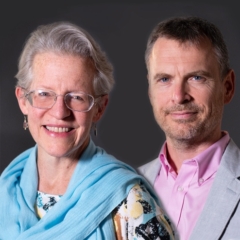In this retreat, we will explore the embodied experience of a balanced nervous system and a clear mind from the perspective of neuroscience, and see how tantric and yoga practices can reshape dysfunctional patterns that inhibit the integrated flow of pranic intelligence. Understanding how yoga practice trains the brain and nervous system will develop your confidence and strength of purpose, and help you choose the most effective approaches to a balanced and happy life.
Together, we will learn the neuroscience model of self-protective motivational systems and the tantric and yogic context for developing extraordinary powers of body and mind. We will practice techniques including mantra recitation, invocations, asana, breath control, and meditation to skillfully employ our desires and manage the sources of fear, anger, and selfishness.
Session topics include:
- Energetic alignment and integration with asana and pranayama
- Developing present-moment awareness: why it’s important and how to begin
- How and why meditation can integrate experiential awareness and the thinking mind
- How the power of intention, ethical behavior, and devotion weave stability and psychological freedom into the fabric of life
- Tantric and yogic techniques to interrupt self-centered thinking associated with unhappiness
- Recitation of Vedic mantras to modulate vital rhythms and autonomic nervous system
- From brainstem to cortex: yoga and modern science approaches to learned behavior
- Ignorance, egoism, attachment, aversion, and fear: yoga on universal mental conditioning
- The flowering of spiritual life: preparing the field
- Sensory integration: bottom-up embodiment practices, and top-down meditative and contemplative yoga practices
- How to balance the negativity bias
- Freedom from attachments and aversions: moving beyond the tyranny of survival motivations
- The problem with “selfing” and yoga’s solution
- Resiliency and vulnerability: finding stability and well-being in an uncertain world
The course schedule allows time for practice, study, and contemplation, with options to complete a purascharana (a focused 9-day meditation practice), as well as:
- Introduction to Himalayan Institute meditation methods (if you are new to meditation or need a refresher)
- Personal appointments with faculty
- Help in establishing a daily routine during your time at the Himalayan Institute and at home







